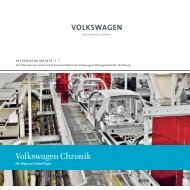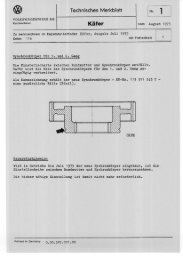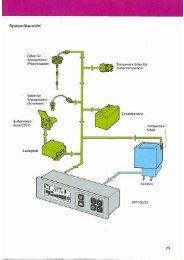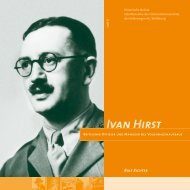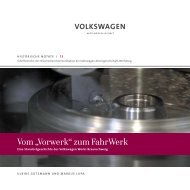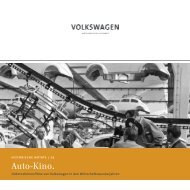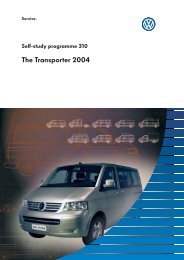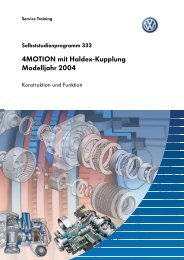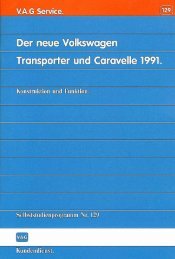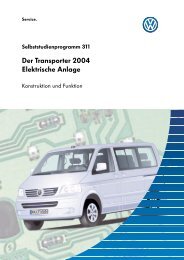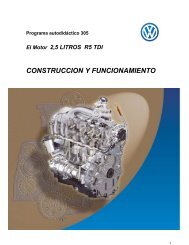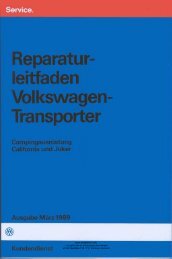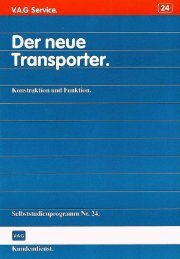HN 2: The British and their Works
HN 2: The British and their Works
HN 2: The British and their Works
Create successful ePaper yourself
Turn your PDF publications into a flip-book with our unique Google optimized e-Paper software.
ests of the workforce, while the Director of Human Resources, as<br />
a member of the factory management, was expected to look<br />
after company interests. Secondly, the <strong>British</strong> regarded themselves<br />
as temporary trustees <strong>and</strong> did not want to present a<br />
future board of management with a fait accompli in this key<br />
issue. 136<br />
Even Heinrich Nordhoff, who took over as general manager on 1st January 1948, strenuously opposed the appointment of a<br />
Director of Human Resources. In his relations with the works<br />
council <strong>and</strong> the union he was less concerned with conciliation<br />
than his predecessor Münch. His paternalistic style of leadership<br />
was ruled by his firm conviction that "there is no alliance more<br />
natural than that between a factory management <strong>and</strong> its<br />
employees". 137 This alliance was doubtless assisted by the fact<br />
that the pay scale at the Volkswagenwerk rose far beyond the<br />
West German average after the Allied wage freeze was lifted in<br />
October 1948. In August of that year, the factory management<br />
<strong>and</strong> works council had already agreed on a general wage increase<br />
of 15 per cent. In subsequent negotiations, the employee<br />
representation managed to achieve wage increases of up to 50<br />
per cent for the lower wage groups. 138<br />
<strong>The</strong> policy of the new general manager was not the only<br />
problem the works council was faced with. Disputes between<br />
communists <strong>and</strong> social democrats additionally impaired its<br />
work. At the works council elections of June 1948 the socialdemocratic<br />
majority in the "IG Metall" (metalworkers’ union)<br />
pushed through, against previous custom, a list overwhelmingly<br />
composed of its members. This led to the setting up of an<br />
opposing list, in which the CDU <strong>and</strong> KPD c<strong>and</strong>idates, together<br />
with the independents, presented themselves. <strong>The</strong> "election<br />
campaign" turned into a real mudslinging match, with the<br />
participants hurling mutual accusations of corruption.<br />
Nordhoff took advantage of the weakened employee representation<br />
to gradually restrict its influence <strong>and</strong> to move committee<br />
powers into his area of responsibility. He achieved this without<br />
any major resistance from the works council which was intent<br />
on reconciliation, lacking both the workforce backing for a<br />
course of confrontation <strong>and</strong> the enthusiasm to engage in<br />
conflict. However, Sührig, the union secretary who came to<br />
Wolfsburg in 1949 on the orders of the IG Metall central<br />
governing body in search of an aggressive confrontation with<br />
Nordhoff, failed to carry the employee representation or the<br />
Volkswagen plant workforce with him. 139<br />
More even than the troubles between social democrats <strong>and</strong><br />
communists, the growing influence of extremist right-wing<br />
c<strong>and</strong>idates threatened to test the VW works council to its limits.<br />
At the works council elections of 1948 a grouping made its first<br />
appearance which regarded itself as a union opposition list.<br />
<strong>The</strong>se groups were boosted by the results of the local government<br />
elections of November 1948, in which the "Deutsche<br />
Rechtspartei" (German Right Party – DRsP) won a l<strong>and</strong>slide<br />
victory in Wolfsburg, polling 64 per cent of the votes. Because<br />
the mood among the workforce gave rise to fears of a similar<br />
debacle at the works council election in May 1949, the IG Metall<br />
<strong>and</strong> the Deutsche Angestellten Gewerkschaft (German<br />
Employees’ Union) reserved places on <strong>their</strong> joint list for six extreme<br />
right-wing c<strong>and</strong>idates, five of which were elected to the<br />
works council. This strategy of neutralising opposing forces by<br />
inclusion was ultimately a sign of weakness. <strong>The</strong>re was no union



